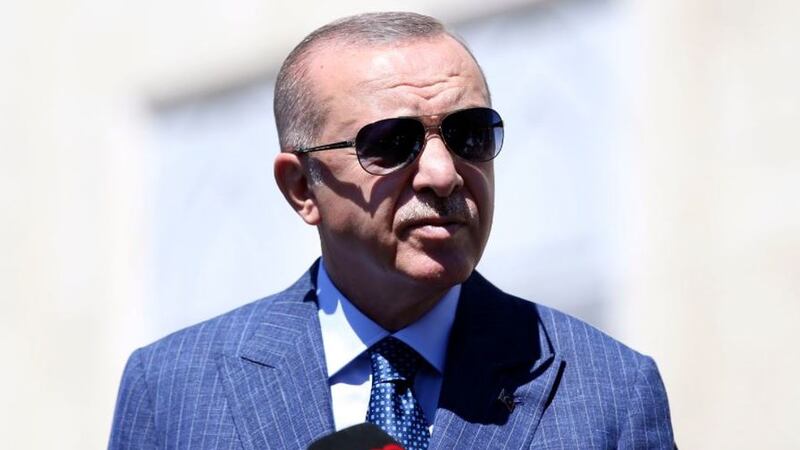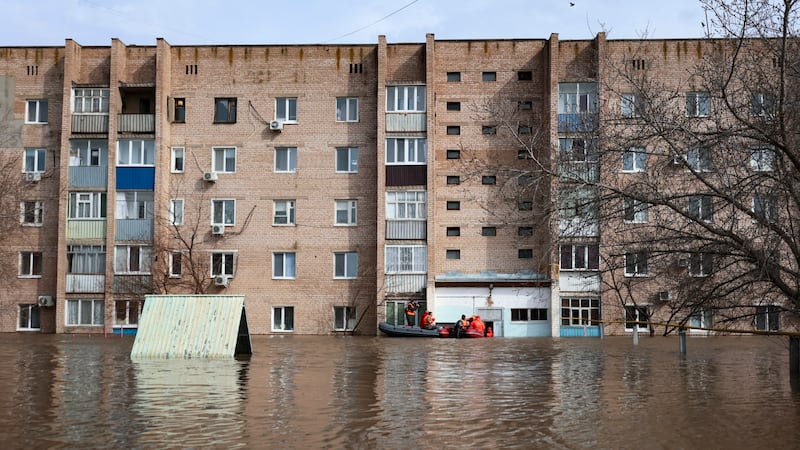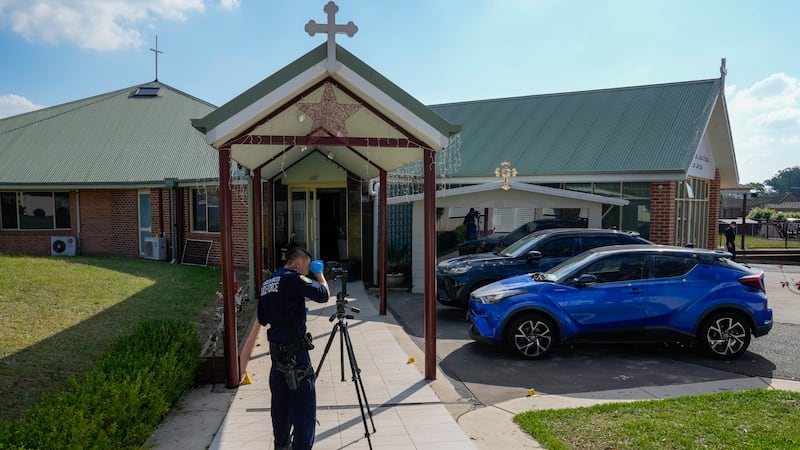European Union foreign ministers are preparing for urgent talks on military tensions between Greece and Turkey as the neighbouring countries' navies continued a game of brinkmanship over eastern Mediterranean drilling rights.
Turkish President Recep Tayyip Erdogan said he would press ahead with the search for oil and gas in the disputed waters until August 23, as planned, but after a phone call with Germany's leader, he signalled that Ankara and Berlin had agreed to a "softening" of positions after that date.
There was no indication from Athens whether it had been consulted, or agreed,.
Mr Erdogan warned that Turkey would strongly respond to any "harassment" of its vessels by Greece. Ankara has a research ship accompanied by two warships prospecting between Cyprus and the Greek island of Crete, and Greece deployed its own naval vessels to the area.
Greek foreign minister Nikos Dendias travelled to Vienna to meet US secretary of state Mike Pompeo and Austrian foreign minister Alexander Schallenberg. The emergency EU meeting is being held by video conference.
Although the meeting is not expected to produce any decisions, Athens is seeking the 27-country bloc's backing and a commitment for potential EU sanctions from its partners in the dispute with Turkey, which comes weeks after a similar confrontation was defused with German Chancellor Angela Merkel's intercession.
Ahead of his meeting with Mr Dendias, Mr Schallenberg said he was "very concerned about the dangerous and alarming situation, which we believe could escalate".
"Actions taken by certain states in the eastern Mediterranean ... should lead the European Union to re-evaluate its relations with Turkey," he said.
Only France has responded so far, pledging to boost its military presence in the eastern Mediterranean and sending two warships to the area for joint drills with the Greek navy. France also deployed two fighter planes to Crete.
French relations with Turkey, which is not an EU member, are already strained over Ankara's involvement in Libya's civil war.
Relations between historic regional rivals - and nominal Nato allies - Greece and Turkey have hit a more than two-decade low after Turkey sent a seismic research ship, escorted by warships, to prospect on Monday for potential offshore oil and gas in waters Athens claims as its own.
Greece placed its armed forces on high alert and sent warships to the spot, south of Turkey between Crete and the island nation of Cyprus, demanding the vessels' withdrawal.
Turkey claims it has every right to prospect in the area, as well as in neighbouring waters Cyprus considers its own, after the discovery of large offshore gas deposits in recent years off Israel, Egypt and Cyprus.
The governments in Athens and Ankara have spoken of the need for peaceful dialogue, although it is unclear how that could happen with each insisting they will defend their rights.
Meanwhile, with the warships dancing about each other in a relatively small patch of the eastern Mediterranean, there is a real danger of rapid escalation in the case of an accidental collision or hostile act.


